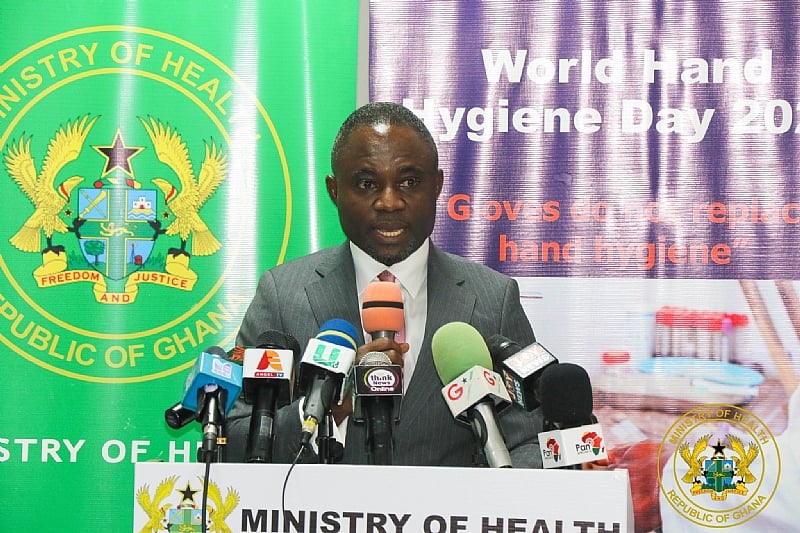The Ministry of Health has commemorated World Hand Hygiene Day to show Ghana’s committed to infection prevention and control through the promotion of proper hand hygiene practices.
This year theme: ‘It might be gloves, it’s always hand hygiene,’ aims to underscore the importance of proper hand hygiene, especially in healthcare settings.
Speaking at the event on Monday in Accra, the Minister for Health, Mr. Kwabena Mintah Akandoh, stated that this year’s commemoration aligns with the World Health Organization’s Global Action Plan and Monitoring Framework for Infection Prevention and Control (2024 2030), as well as Ghana’s own National IPC Strategy.
He announced the progress made under the IPC framework, including the establishment of a National IPC Committee that meets quarterly to guide policy implementation, the appointment of a national IPC focal person to oversee activities nationwide, and the integration of hand hygiene indicators into the District Health Information Management System (DHIMS2).
The Minister noted that while gloves are essential in clinical settings, it must never replace hand hygiene and called for consistent hand hygiene practices from top-level administrators to frontline workers, especially as the country continues to recover from the impact of the COVID-19 pandemic.
He indicated that by 2026, all regional and teaching hospitals in Ghana will be required to routinely monitor hand hygiene compliance and incorporate feedback into their quality improvement systems.
Mr. Minitah Akandoh stressed that hand hygiene education must extend beyond hospitals into homes, schools, and communities, creating a culture where everyone plays a role. He encouraged citizens to empower patients to ask, “Have you washed your hands?” and urged health leaders to lead by example.
A representative from the World Health Organization (WHO), Dr. Sally-Anne Ohene, indicated that approximately 70% of health care workers do not routinely practice hand hygiene and as little as 50% of surgical teams comply with hand hygiene best practice throughout a surgical patient’s hospital stay.


